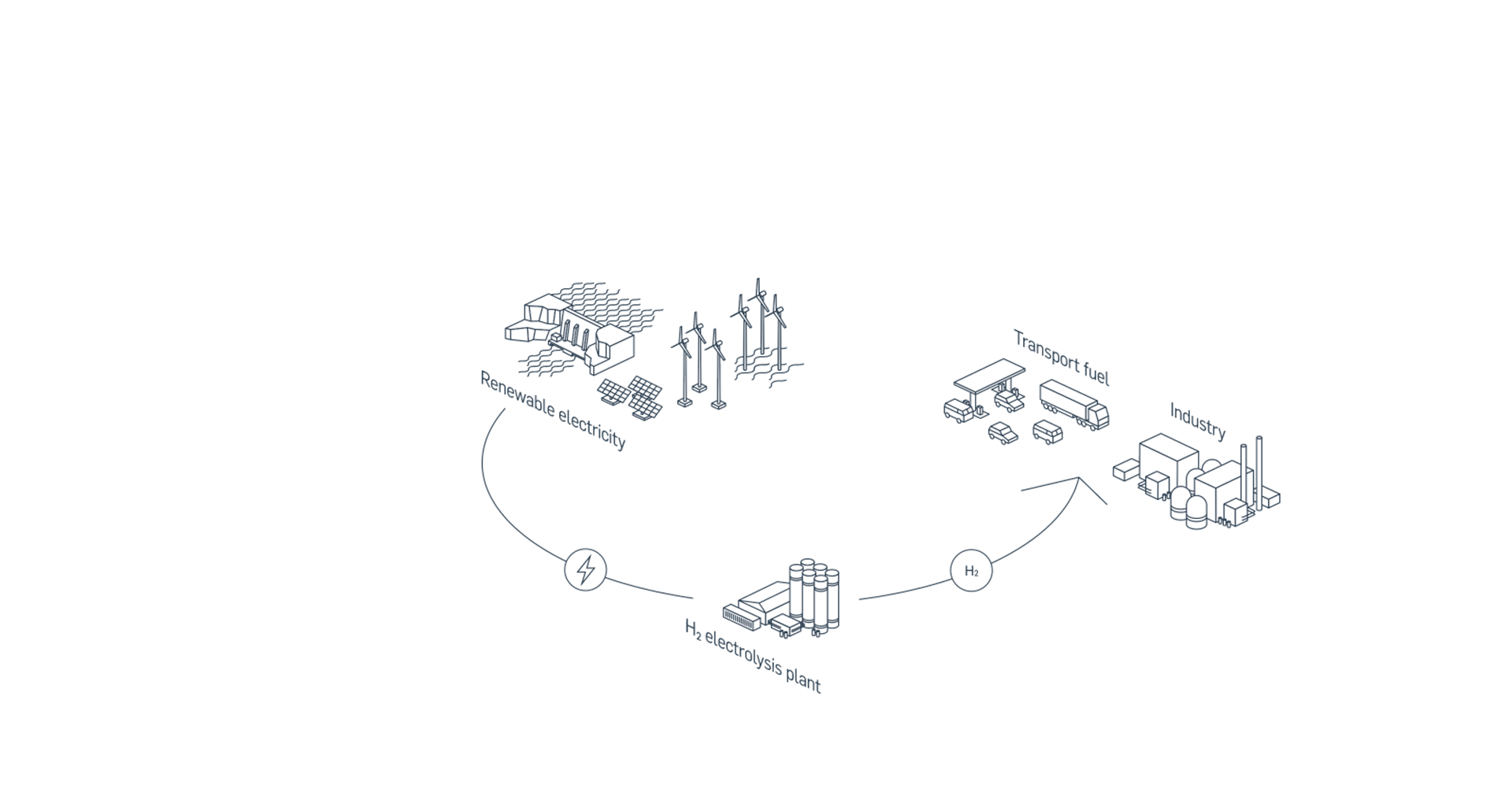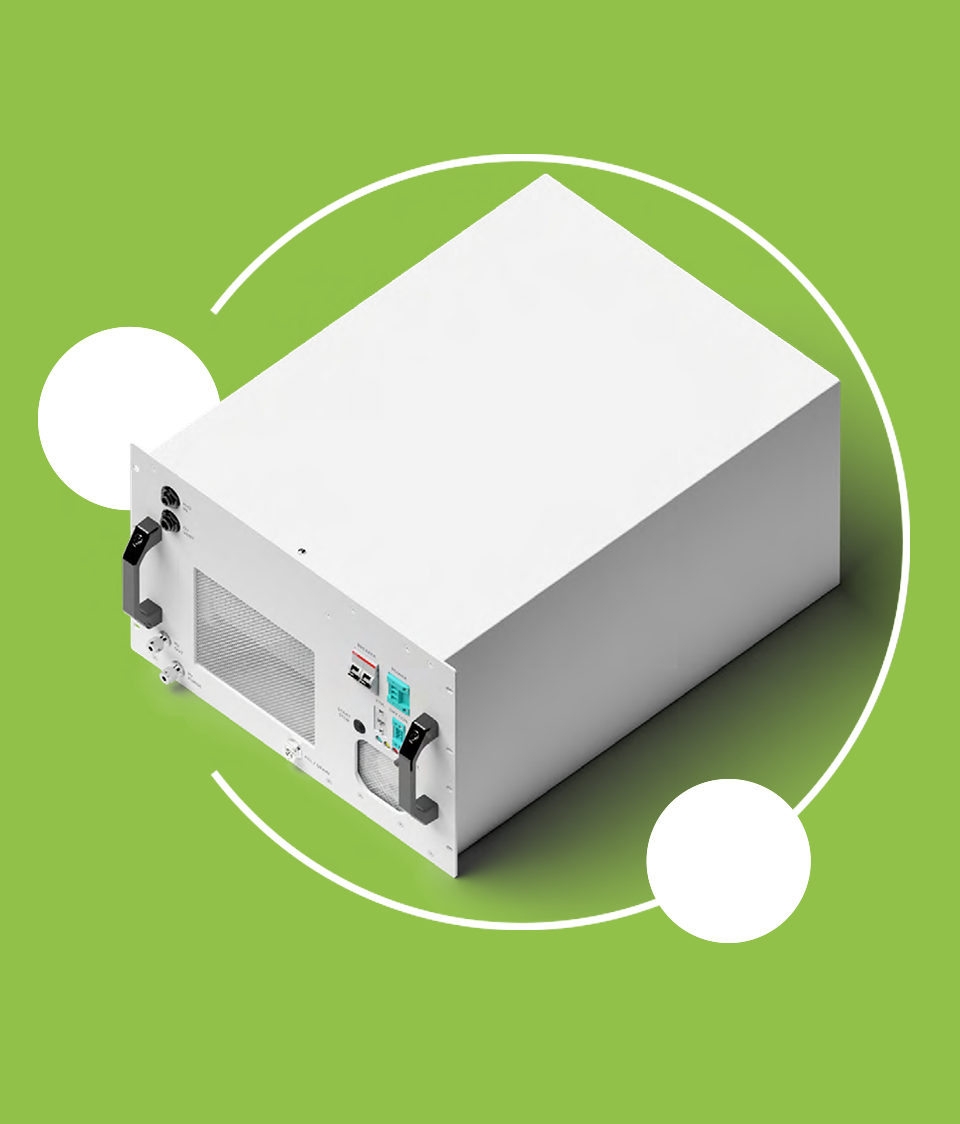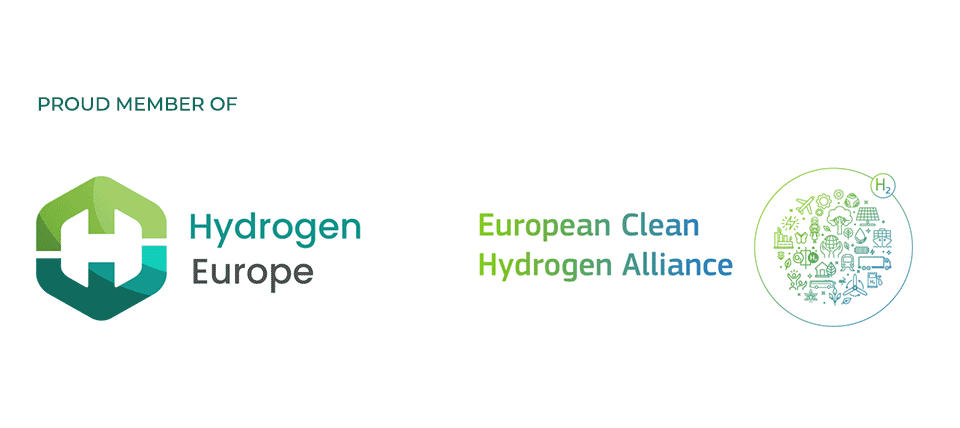
Green Hydrogen
The so-called “Green Hydrogen” is obtained by electrolysis of water, and the electricity for its production is from renewable energy – solar, wind or water energy. The ability to produce large amounts of green hydrogen will play an important role in providing an alternative to fossil fuels as we transition to low emissions and work towards a clean and healthy environment.
Green Hydrogen offers better ways to reduce carbon emissions in a number of hard-to-decarbonize sectors – including long-haul transport, chemical manufacturing and even food processing – where it is proving difficult to significantly reduce emissions.
Green Hydrogen can significantly help to:
- improving air quality and
- strengthening energy security.
The technologies already available today allow us to use green hydrogen to produce, store and transport energy to be used in a variety of ways.
Green H2 production is carbon-free, using 100% renewable energy instead of fossil resources.
Green hydrogen can be transported as a pressurized gas or in liquid form via pipelines, ships, or trucks.
It can be transformed into electricity and methane to power industry and power plants, as well as fuels for cars, trucks, ships and planes.
Green H2 and hydrogen-based fuels can transport renewable energy over long distances – from regions with abundant renewable resources to energy-demanding customers thousands of kilometers away.

Electrolyser
EL 4
Plug & Play AEM electrolyser
that turns renewable electricity and water into
low-cost Green Hydrogen.



Hydrogen Technologies is the only Bulgarian company member of “Hydrogen Europe” and “European Clean Hydrogen Alliance”
Hydrogen Europe is the European association that represents the interests of the hydrogen industry and its stakeholders and promotes hydrogen as a factor for a zero-emission society. With more than 400+ members, including 25+ EU regions and 30+ national associations, the organization covers the entire value chain of the European hydrogen and fuel cell ecosystem.
The aim of Hydrogen Europe is to drive global carbon neutrality by accelerating the European hydrogen industry.


